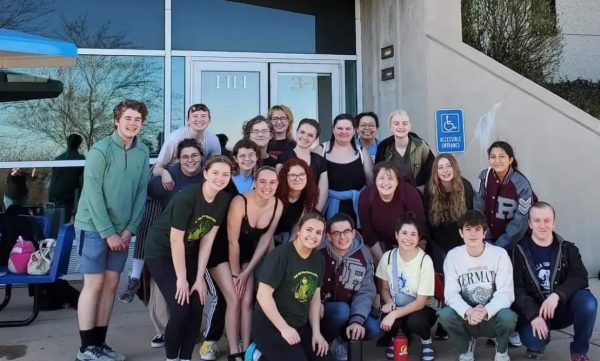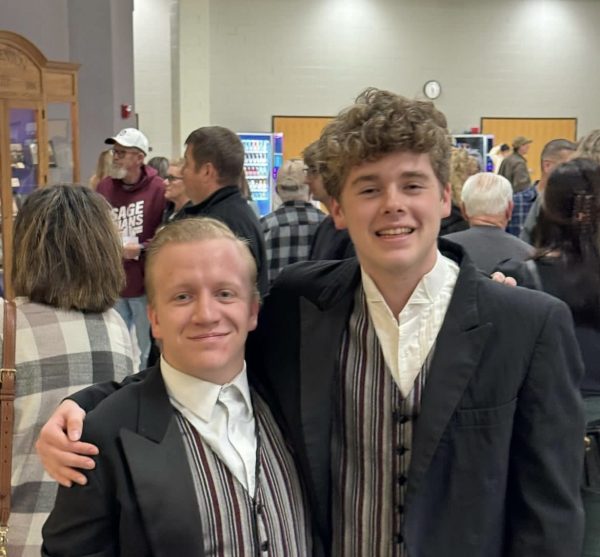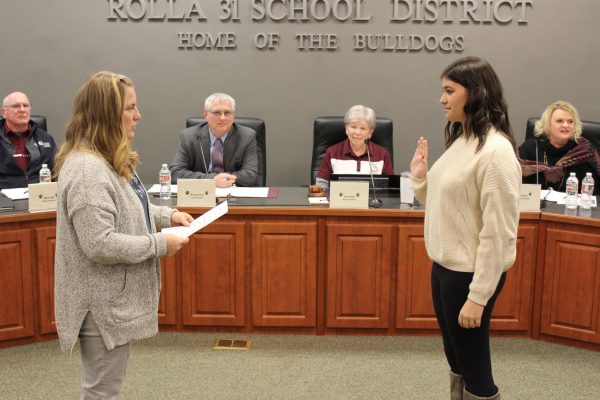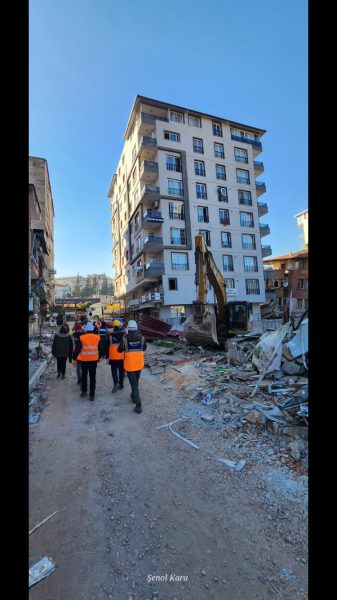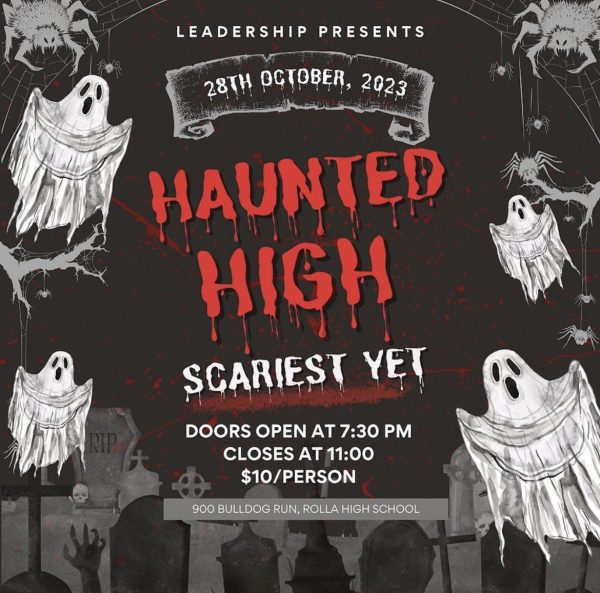The deadliest drug hits rolla: the truth about heroin

We’ve all heard of the dangers and consequences of meth, and we know that its happening right here in our community. But since 2009, there has been an alarming increase in local arrests and deaths for another drug: Heroin.
Heroin is a naturally occurring drug, made from poppies growing mainly in the Middle-East and western Asia.
“It’s an overseas process. The poppies growing in Turkey and Afghanistan are cut and the opium comes out. They process and refine it all over there; nothing is done on U.S. soil. So a lot of the heroin sold is funding terrorism while we’re fighting this war on terrorism. The money people are spending on heroin is helping the enemy kill our troops,” Rolla Police Department Street Crimes Unit Officer Josh Campbell said.
Heroin, also known as ‘Brain’ or ‘Smack’, is a dangerously addictive and mind altering drug with detrimental effects that are often unknown and under exaggerated.
Unlike other drugs, if a regular user stops taking heroin, they will get dope sickness. Dope sickness can occur as little as two hours after the last use.
“Heroin is really bad because when you use it and stop, you get dope sickness. Dope sickness consists of flu like symptoms, but times 100. You get shakes, confusions, sweating, vomiting, diarrhea, muscle cramps and aches. You just feel like you’re dying. The only way to get rid of dope sickness is to go to treatment and come down in a medical facility. That’s why it’s so addicting, you have to use, or you’ll get sick,” Rolla Police Department Special Ops Command Patrol Division Officer Adam Meyer said.
While heroin provides a short term “euphoric” state, it depresses the respiratory and central nervous system, making it one of the easiest drugs to overdose on.
“In the past four months, we’ve had eight overdoses that resulted in deaths, and countless non-lethal overdoses. There are no accurate statistics because people don’t report [everything]. The reason they don’t report it is because they don’t want us to know that they’re doing illegal activity. We have no idea the actual amount of people using heroin in Rolla, but we’re running into it everywhere. It’s bigger than meth right now.
“There was a case with a 19 year old boy. His friends called and said he overdosed. I go to the hotel room that they’re staying at and there are three other people that are supposed to be his best friends. They say, ‘He overdosed a couple hours ago, so we put him in the bathtub and filled it up with cold water and tried to revive him.’ He was cold and turning blue and purple. He had been dead for a couple hours, but they didn’t want to get in trouble so they didn’t called the police as soon as he started overdosing. So he’s dead at 19 because his friends were afraid of getting in trouble,” Campbell said.
In addition to the difficulty of knowing all the statistics of heroin us in Rolla, it is impossible to know what ‘type’ of people use the drug.
“We don’t profile people to be drug users because it’s a bad way. There is no profile. It’s rich people, poor people, smart people, stupid people, white, black, Mexicans, anybody. There is no way to profile a drug user, and heroin is no exception. All people from all walks of life use heroin,” Meyer said.
While there is no particular phenotype of a heroin user, there is one for who the RPD is putting their main focus on stopping.
“The dealers are the source of the problem. They are the problem because they are the ones passing out the heroin and helping people overdose and die. It’s dealers that are pushing heroin into the veins of people,” Meyer said.
“Most users are dealers to a degree. We would like to get the bigger people that are bringing it into the community versus just somebody that’s a drug addict. A drug addict is bad because they’re selling drugs to feed their addiction, but the person that’s bringing the big stuff in is what is best for us to get. If we can cut them out, it’s not coming into our community,” RPD Street Crimes Unit Officer Luke Kearse said.
RPD is making many advances to combat the war on heroin, educate people about the devastating effects, and help current addicts.
“Right now, we’re talking to you. We talk to people and tell them about the negative effects of using heroin and how bad heroin can be. We are meeting with some drug treatment centers to set up treatment for people wanting to get treatment. That way we can send them directly to treatment instead of taking them to jail. The main thing is, the person has to want help. If that person doesn’t want help, there is nothing we can do for them. We don’t want kids [to become] future addicts, and how do you stop that? Just being educated and seeing what the effects of that drug is,” Campbell said.
“We watch houses that we know people sell out of, we have undercover police officers. Once we identify heroin users, whenever see them we stop them as much as we can. We’re not going to give them any breaks, any passes, anything at all. They’re the problem, we’re the solution – as far as drugs are concerned,” Meyer said.
As the problem persists, an increase in heroin-related deaths and crime has police worried for the community.
“We’re going to see a lot more death in this community by people overdosing and drug related shootings. These addicts that can’t get money for the drug are going to start burglarizing people and breaking into cars. We’re working tons of burglaries and vehicle break-ins, and it’s all drug related. I’m afraid the more [the heroin problem] grows, we’ll see more violent crime,” Kearse said.
The fact that for the most part, Rolla has a low crime rate without drugs, gives inner city gangs the upper hand here.
“Rolla is a non-violent community, but Rolla has a demand for heroin. St. Louis has gang members that want to make money in non-violent communities so they can be the threat. They move to small towns like Rolla to sell their heroin and not have as many police officers. They aren’t afraid to carry guns and they’re not afraid to hurt people. But they know Rolla people don’t carry guns and for the most part are afraid to hurt people. So they can do the robbing and the dealing and have the gang ties,” Kearse said.
“That’s what we’re trying to stop with the heroin. If there was no demand, why would [they] come down here to supply it,” Campbell said.
Aside from the growing rate of overdoses and crime, families are perhaps the most effected.
“The problem with heroin is it kills people. Heroin, opiates, pills, people overdose on that stuff and it happens on a regular basis in Rolla, and it’s sick. The reason it’s sick is those people, even though they’re addicts, leave behind people that love and care about them. It leaves families devastated.
“There was a guy that overdosed and died and his old drug dealer was trying to call the dead mans mother to collect on his drug debts. It’s a twisted world,” Meyer said.
Not only does heroin use mentally affect families, it can also cause unintended physical harm.
“There are people that are shooting up and have hepatitis C and leave their dirty needles around. They could have kids crawling around on the floor and can get stuck and contract hepatitis without even knowing because they’re so young,” Kearse said.
The only way to prevent future addicts is through education. People need to begin educating their children at an early age to prevent the risk of later drug use.
“Drugs are something that all families should be concerned about. Talk to your kids about it and tell them beware. Just like I heard when I was growing up, talk to your kids about drugs and the dangers of drugs, monitor who your kids hang out with. People that use heroin and meth, and people that use needles and smoke crack – and all of that stuff is in Rolla – they turn into different people. They turn into people they don’t want to be. Families should be concerned about it, talk about it, and parents absolutely should monitor who their kid’s friends are. That stuff is in Rolla, it’s not a St. Louis problem, it’s a Rolla problem. That’s why Rolla people should be concerned,” Meyer said.
Another thing that makes heroin such a threat is the availability and low cost.
“One dose is less than ten dollars. A middle schooler can afford it. If you go out in Rolla and actively look for heroin, you could find it. You can get heroin as easily as you can get weed. You may have to give somebody your money and wait, but you’ll get it,” Campbell said.
Compared to other drugs in Rolla, there are more busts and more arrest related to heroin.
“It’s the worst thing out there right now. It’s what is killing people. Meth is terrible, the meth labs are terrible, and the hazmat that goes with it are crazy. But at the same time, heroin is something that kids are doing and young adults are doing, thinking ‘ah, it’s just one time or two times’, and then they’re an addicted person that can’t get off it,” Campbell said.
Heroin is becoming more and more popular among teens and young adults.
“Sometimes, we’ll see the older people that have been in this lifestyle for a long time, and they are in and out of jail. When they get out they are just like, ‘I’m tired of going to jail, I‘m burnt out on this lifestyle.’ You’ll see the older people making the change. The younger people haven’t wasted enough of their life to realize that this is a waste,” Kearse said.
There are some things that people should know about heroin and the lifestyle that comes with it to prevent future users.
“People need to know what it looks like so they are aren’t tricked into using something else. You can overdose the first time you use. If you start snorting, eventually your addiction will take over, and you will start shooting, whether you like needles or not. You have to take medication and treatment to get of this drug, you can’t just cold turkey quit,” Kearse said.
The Rolla Police Department is very aware that they themselves can’t stop this problem.
“It’s going to take a community effort. The community has to work together, the police can’t stop anything. The only way we can help stop it is by people talking to their kids and their friends, calling the police whenever anything goes on. We’re from the street crimes unit, and our goal is to not to just go busting in and arresting people, it’s to help people. By the police and the community working together and legitimately trying to help people, that’s the only way we can fix it. All police can do is slow it down, and at some point, we won’t even be able to do that,” Kearse said.
Since heroin use in Rolla is a persistent problem, people shouldn’t expect for it to go away without a fight.
“The war on drugs will never be won, but it’s the good fight that we’re fighting. There is always going to be drugs, there is always going to be crime, and there is always going to be heroin. It will never go away, it’s just what we can do to mediate the dangers on our community,” Meyer said.



